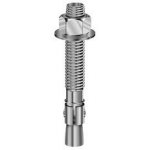cellardweller
New member
I've read many places that when you change tubes, you should hit 'em with a bit of contact cleaner and maybe plug them in once or twice to remove oxidation/etc.
So I go to radio shack, lo and behold there is one can of contact cleaner left. Halu-fucking-leuia.
So I'm on the last tube, when I notice a kinda oily film on the housing (not really a "film", but that oily "shine").
So I read the ingredients Tetrafluoroethane and WHITE MINERAL OIL!!!
So I take the tubes all back out, and get some cotton swabs to mop up any residue I might see.
I really didn't think I used an excessive amount, and I only found one spot with any evidence of an oily "shine".
Am I screwed???


White mineral oil? Is this common contact cleaner ingredient, or did I screw the pooch?
So I go to radio shack, lo and behold there is one can of contact cleaner left. Halu-fucking-leuia.
So I'm on the last tube, when I notice a kinda oily film on the housing (not really a "film", but that oily "shine").
So I read the ingredients Tetrafluoroethane and WHITE MINERAL OIL!!!
So I take the tubes all back out, and get some cotton swabs to mop up any residue I might see.
I really didn't think I used an excessive amount, and I only found one spot with any evidence of an oily "shine".
Am I screwed???



White mineral oil? Is this common contact cleaner ingredient, or did I screw the pooch?




